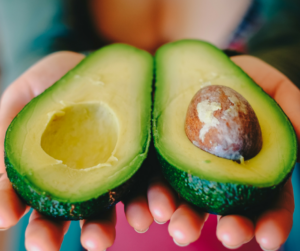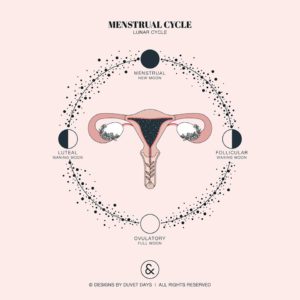Foods to optimize fertility
Balanced blood sugar is the foundation of hormonal balance and the first step in optimizing fertility. It starts with what and how we eat – every single day. We also know that to optimize our fertility we need to minimize stress. By ‘stress’ we are not talking just about everyday stressors like driving in heavy traffic or running late to catch a flight; it is any perceived stress your body experiences (such as mismanaged blood sugar). Nowadays this can occur daily, sending our bodies into overdrive and keeping us in fight/flight/freeze mode. When we are under stress our body puts reproduction and digestion on the back burner in order to direct all resources toward survival.
 What foods best support your fertility? Ideally, most of the foods we consume should be organic as well as pesticide and chemical free and in their whole and unprocessed form. If all organic is cost prohibitive you can focus on keeping the ‘dirty dozen’ organic, as well as 100% organic meat, eggs and full fat dairy. You can check the Environmental Working Group for an updated list of the Clean Fifteen and the Dirty Dozen. To support our body in making hormones we want to eat lots of omega rich foods such as avocados (the fertility superfood), wild-caught salmon, pastured organic eggs, walnuts, almonds, sunflower seeds, flax seeds, coconut, and olive oil. Focus on foods rich in antioxidants and beta carotene like dark leafy greens, blueberries, raspberries, blackberries, red grapes, yellow and orange vegetables like carrots, squash, sweet potatoes. These will provide lots of nutrients our bodies need. Cruciferous vegetables are full of fiber and contain DIM to help with estrogen metabolism. They also protect our bodies from harmful chemicals. For men lycopene-rich foods like tomatoes help to support sperm count and eating a diet rich in antioxidants will help with sperm motility and morphology.
What foods best support your fertility? Ideally, most of the foods we consume should be organic as well as pesticide and chemical free and in their whole and unprocessed form. If all organic is cost prohibitive you can focus on keeping the ‘dirty dozen’ organic, as well as 100% organic meat, eggs and full fat dairy. You can check the Environmental Working Group for an updated list of the Clean Fifteen and the Dirty Dozen. To support our body in making hormones we want to eat lots of omega rich foods such as avocados (the fertility superfood), wild-caught salmon, pastured organic eggs, walnuts, almonds, sunflower seeds, flax seeds, coconut, and olive oil. Focus on foods rich in antioxidants and beta carotene like dark leafy greens, blueberries, raspberries, blackberries, red grapes, yellow and orange vegetables like carrots, squash, sweet potatoes. These will provide lots of nutrients our bodies need. Cruciferous vegetables are full of fiber and contain DIM to help with estrogen metabolism. They also protect our bodies from harmful chemicals. For men lycopene-rich foods like tomatoes help to support sperm count and eating a diet rich in antioxidants will help with sperm motility and morphology.
If you are trying to conceive it is helpful to eat as if you are pregnant. This means focusing on warm cooked foods, lots of broth such as bone broth soups and consuming warm or room temperature beverages. It is also important to stay hydrated. This also means ditch the caffeine, coffee can negatively impact fertility and studies have shown that if you’re undergoing IVF it can reduce your success rate by as much as 50%. Even though green tea seems like a healthy choice since it is high in antioxidants it can actually decrease blood flow to the uterus. That is something we definitely don’t want for conception!
For balanced blood sugar the Mediterranean diet has been found to be the most supportive. This focuses on healthy fats, lean proteins, nuts, seeds, and lots of fresh veggies. Here the slow burning carbohydrates keep your blood sugar stable and prevent the crash and burn you can experience from sugar laden products.
To ensure our microbiome is running smoothly focus on probiotic rich foods such as sauerkraut, kimchi, yogurt, or kefir. A healthy microbiome will ensure the estrobolome works well, helping your body metabolize and get rid of excess estrogen through phase 1 and 2 detoxification. Many studies have shown that if you’re trying to conceive, eating full fat dairy is beneficial.

If you want to take this a step further you may consider eating for each phase of your cycle to support hormones throughout your menstrual cycle. During menses you will want to eat more blood building foods such as dark berries, beets, mushrooms, black sesame seeds, kidney and black beans, and sea vegetables as well as lean proteins. During the follicular phase and ovulation phase focus will be on egg development and building a good endometrial lining to support a strong and successful implantation. This is the time to eat more raw vegetables to support estrogen metabolism. During the luteal phase you may notice you feel more hungry, this is because your body has a lower resting blood sugar rate. Here the need for more slow burning carbohydrates increases and foods such as sweet potatoes, root vegetables, brown rice, and quinoa are optimal choices. These slow burning carbs will help to boost progesterone production which is necessary for a healthy pregnancy.
If you are looking for more support consider working with a fertility specialist!

 In Chinese medicine, we have a very similar view; the body is in a constant dynamic of change, never static. When we adopt healthy changes we can decrease the degree the pendulum will swing in each direction and therefore decrease the negative and pesky symptoms we experience. This is why acupuncture treatments vary, because your symptoms are never the same. By treating the body as a whole and selecting points that target each phase of your cycle, the hormones will be supported. But this work does not stop when you leave the treatment room. By integrating diet and lifestyle changes, you will see great changes in the health of your menstrual cycle. This means a decrease in cramps, less bloating, optimal digestion, decrease in breast swelling, decreasing PMS symptoms like anxiety, depression, and headaches before your cycle. The changes you make encourage healthy bleeding, showing a deep vibrant red colored blood, no spotting before or after, regular cycles, and removing stagnation that leads to clots. The changes boost your energy, stopping uterine and ovarian cysts and fibroids, as well as supporting weight management. And my favorite – boosting your fertility and allowing for optimal ovulation for implantation and supporting a healthy full term pregnancy. This practice has also been proven to put certain conditions like PCOS (polycystic ovarian syndrome) and endometriosis into remission as well and a new research study shows that is can stave off early menopause by three years!
In Chinese medicine, we have a very similar view; the body is in a constant dynamic of change, never static. When we adopt healthy changes we can decrease the degree the pendulum will swing in each direction and therefore decrease the negative and pesky symptoms we experience. This is why acupuncture treatments vary, because your symptoms are never the same. By treating the body as a whole and selecting points that target each phase of your cycle, the hormones will be supported. But this work does not stop when you leave the treatment room. By integrating diet and lifestyle changes, you will see great changes in the health of your menstrual cycle. This means a decrease in cramps, less bloating, optimal digestion, decrease in breast swelling, decreasing PMS symptoms like anxiety, depression, and headaches before your cycle. The changes you make encourage healthy bleeding, showing a deep vibrant red colored blood, no spotting before or after, regular cycles, and removing stagnation that leads to clots. The changes boost your energy, stopping uterine and ovarian cysts and fibroids, as well as supporting weight management. And my favorite – boosting your fertility and allowing for optimal ovulation for implantation and supporting a healthy full term pregnancy. This practice has also been proven to put certain conditions like PCOS (polycystic ovarian syndrome) and endometriosis into remission as well and a new research study shows that is can stave off early menopause by three years! So what are the four phases and what exactly is a healthy cycle? Ideally a healthy menstrual cycle is 27 to 32 days, and menses or bleeding will last five to seven days that begins with moderate flow, not spotting, a deep rich red color that maintains a flow for three days, then begins to taper off slowly and ending by day seven. The first phase is the menses phase lasting 3 to 7 days, the second phase is the follicular phase lasting seven to 10 days, the ovulation phase lasting three to four days, then the follicular phase lasting 10 to 14 days.
So what are the four phases and what exactly is a healthy cycle? Ideally a healthy menstrual cycle is 27 to 32 days, and menses or bleeding will last five to seven days that begins with moderate flow, not spotting, a deep rich red color that maintains a flow for three days, then begins to taper off slowly and ending by day seven. The first phase is the menses phase lasting 3 to 7 days, the second phase is the follicular phase lasting seven to 10 days, the ovulation phase lasting three to four days, then the follicular phase lasting 10 to 14 days.  In the ovulation phase there is a sharp rise in follicle stimulating hormone and an increase in luteinizing hormone. The egg will release into the uterus and allows for estrogen and testosterone to rise. In Chinese medicine qi will need to transform yin into yang, or transitioning from the 1st half of the cycle to the 2nd. Here the goal is to course the qi and move blood, blood and yin are at their highest now and it is time to promote the movement of qi and blood. This is a good time to connect with your community since energy is high and communication is at its easiest. Foods to focus on are lighter grains, lots of fruits and veggies, and steamed or raw foods.
In the ovulation phase there is a sharp rise in follicle stimulating hormone and an increase in luteinizing hormone. The egg will release into the uterus and allows for estrogen and testosterone to rise. In Chinese medicine qi will need to transform yin into yang, or transitioning from the 1st half of the cycle to the 2nd. Here the goal is to course the qi and move blood, blood and yin are at their highest now and it is time to promote the movement of qi and blood. This is a good time to connect with your community since energy is high and communication is at its easiest. Foods to focus on are lighter grains, lots of fruits and veggies, and steamed or raw foods.